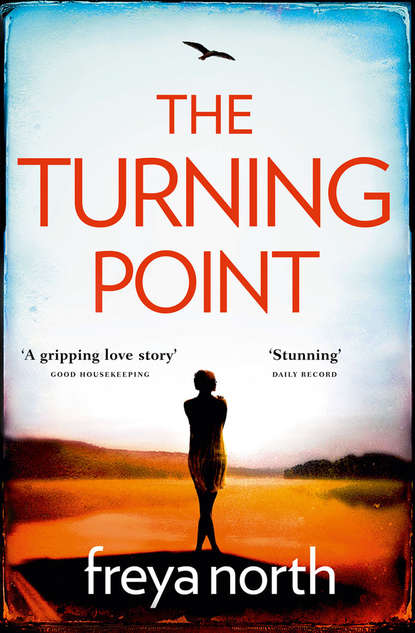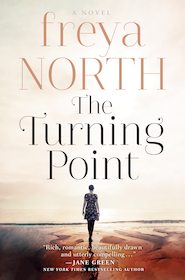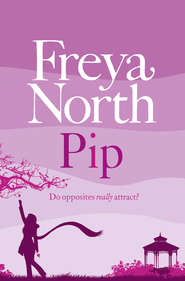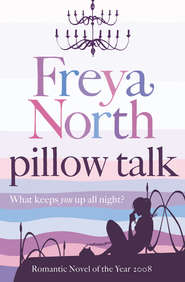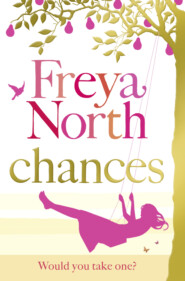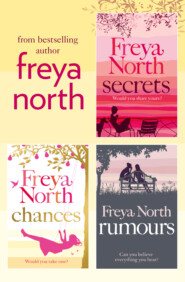По всем вопросам обращайтесь на: info@litportal.ru
(©) 2003-2024.
✖
The Turning Point: A gripping emotional page-turner with a breathtaking twist
Автор
Год написания книги
2019
Настройки чтения
Размер шрифта
Высота строк
Поля
‘I know – I’ve watched you over the years. Same spot, same view, different dog.’ She linked her arm through his and he kissed her forehead. They could see Shelley’s car snake up the steep serpentine drive to the house and noticed Aaron not far behind her.
‘Our own personal cab service,’ Scott said.
‘I’d do anything to drive my own car and be the lift-giver.’
Jenna’s light tone belied the deep emotion. There was not a lot Scott could say. He checked his watch. ‘Listen, Saturday the kids are coming up to use the studio.’
Jenna nodded. Scott mentored young musicians, forming and coaching bands that combined young talent from the white and Ĺíĺwat communities. ‘How’s it going with them?’
‘They’re good – but they think they’re better than they are. They just want to jam instead of work at it, practise. They get a little dumb – but hey, they’re kids.’
‘As long as they’re not smuggling in beer like the last lot.’
Scott had to laugh. ‘And there was I thinking that mentoring high-school kids would be all about the music.’
‘You love it really,’ Jenna said, nudging him. Shelley was walking towards the house. ‘See you next week – have a safe flight.’
With his hand back on his dog’s head, Scott watched Jenna leave, chat awhile with Aaron and say something that made his friend tip his head back and laugh at the sky. Then she waved and blew a kiss before climbing into Shelley’s car to head to work in Whistler.
Aaron loped up the steps and Buddy turned circles at the door, yowling with joy.
‘Yep,’ said Scott, ‘you get to hang out with Aaron while I’m gone.’
‘Beautiful day to fly,’ Aaron said, letting himself into the house and heading straight for the kettle and ground coffee.
‘Jenna says we’re running late.’
Aaron laughed, not so much at Jenna’s expense, just that he was always laughing. When Scott was a kid, a serious, reflective kid, Aaron’s laughter would physically rub off on him and he’d feel lighter about life and better about himself. Forty years on and Aaron still had that effect on Scott. That boy’s laughter could lift the tarnish off silver, Scott’s mother used to say.
‘We’re all fuelled up and ready to go. Took her out yesterday and treated her real good.’ Aaron licked his way seductively around the words as if his little Cessna was a woman.
‘It’s enough that you have my dog for me. I’m happy enough to drive to Vancouver. It’s no big deal. I always tell you.’
‘And deny Buddy here – the flying dog – his time up in the skies?’ Aaron shook his head and whistled long and slow. ‘You’re a cruel man, Scott Emerson. I always say it.’
‘You tool,’ said Scott.
‘Splaont,’ said Aaron, in his native tongue.
‘Don’t you go using your tribal insults on me, hoser,’ Scott laughed. ‘Anyways, did you just call me a skunk? Are you going to try and tell me the skunk is a heroic symbol for the Ĺíĺwat nation?’
Aaron just laughed. ‘You remember when we were kids and I’d teach you Úcwalmícwts words and have you believe they were compliments?’
‘Aaron, you made me tell your dad he was slícil – fish slime – and I thought I was telling him he was a mighty eagle.’ Scott took the cup of coffee Aaron had made him, thick enough to stand a teaspoon upright, and drank it down quickly. ‘Well, it’s a beautiful day to fly, so thank you.’
‘I’m not doing it for you, man – I’m doing it because I get to drive your truck and hang out with Buddy. Your truck cost more than my plane.’
In the air, with Buddy managing to fit on his lap, Scott looked down and around the landscape. Mount Currie, stately and benevolent today, like a wise old monarch surveying her kingdom. Pemberton and then Whistler – both glinting and self-contained, as if unaware that life also went on elsewhere. The ice fields and falls and meadows; the mercurial paths of the Lillooet, Elaho and Cheakamus rivers. All the blues and every green. Blue and green should never be seen, wasn’t that what his grandma said? What a load of bull Gramma, Scott thought. He looked at Aaron, grinning away, delighted to be flying him to Vancouver, choosing a circuitous route for the sheer joy of it. Birds might fly economically, with purpose, from A to B. Not Aaron. That was not the point of flight. Scott would still make his international flight with time to spare – so for the time being, why not just fly for the hell of it. It’s beautiful down there. Up here. Everywhere. Life doesn’t get much better than this.
* * *
Margaret Shaw could not guarantee what time she’d arrive and certainly she was not prepared to arrive before lunch. Actually, she arrived at her daughter’s at 11.00, which was a blessing and a curse. Frankie might make the earlier train but the house was still a mess and her mother greeted her with a sharp kiss and a raised eyebrow.
‘I did have a cleaner,’ Frankie said. ‘But she was a bit useless. So I’m looking for another.’
‘And you’re not doing it yourself in the interim?’ It seemed highly unlikely, to Margaret.
‘Actually – I am. With the children. I think it’s good for them to help. So we have our little timetable for an hour on Saturdays mornings.’
‘An hour?’
Frankie thought of Oscar Wilde. A handbag? It gave her a comforting private giggle. Margaret Shaw and Lady Augusta Bracknell. What a fabulous comedy of manners that would make. Who would play her mother? What a role! Her children thought their grandma to be lifted straight from the pages of a Roald Dahl story. When she was very little, Annabel had pointed to a Quentin Blake illustration of Aunt Spiker and said look! it’s Grandma!
‘Let me take your bags to your room. The kettle’s just boiled. I’ve written out everything – and been through it with the kids.’
‘Children.’
‘With the children.’ Frankie paused. ‘I’ve made supper for tonight and tomorrow night – that’s the snack drawer there. I’ve put Annabel’s fruit for school on the windowsill – there.’
‘You have labelled an apple?’
‘Well, the ki – children – put their fruit in a basket in the classroom. You see.’
‘I see.’
‘There’s Rich Tea for you. And real butter. And full milk.’ Frankie thought about what else what else what else. ‘Palmolive soap,’ she said quietly. ‘Vosene shampoo.’
‘Have you fixed that interminable draught in the bedroom?’
‘Yes,’ said Frankie. ‘I hope so. I put the electric blanket on your bed too.’
‘It’s May.’
‘It can get chilly in the evenings still. Here’s a map to Annabel’s school. And here’s Sam’s mobile-phone number.’
‘He has a mobile phone?’
‘For emergencies,’ Frankie lied. Actually, Frankie had bought Sam his phone because he desperately wanted one because everyone has one these days, Mum, everyone. However much she hated technology and couldn’t bear to see children obsessed by screens often at the expense of books, that her son could feel he was cool and that he belonged was something she yearned for him. Sam with his orthodontic braces and protruding ears and two left feet when it came to football.
‘I’d better go, Mum,’ she said. ‘Just call me, or have the kids-children call me, for the slightest thing.’ And she kissed her mother and gave her a squeeze if only to pre-empt Margaret from saying I raised two girls single-handedly, I’m sure I can cope with your offspring, Frankie.
* * *
Jenna needn’t have worried; Scott was at Vancouver airport with time enough to do a little work. He could have gone through to the lounge – they were flying him over business class – but the place he always favoured was right in the middle of the International terminal, in an amphitheatre of sorts dominated by the immense sculpture of The Spirit of Haida Gwaii, a vast jade-coloured bronze canoe filled with symbolic figures of First Nations legend. He sat on a lower tier and set his laptop up on his knees. Somehow, amidst the thrum of people in transit he could concentrate far better than in an airport lounge clogged with the conversations of self-important businessmen. He hadn’t checked his emails for a couple of days and ploughed through them, reading each carefully if only to answer them with his characteristic one or two spare sentences. His agent had emailed to say he needed to speak to him and it surprised Scott to see the missed calls on his phone from yesterday. Had he not checked it since then? He called him to apologize.
His relationship with his agent was a strong one stretching over almost two decades but the business side of his career bored Scott and he found himself listening to the sound of his agent’s voice rather the content of his words. For Scott, even in spoken tones, there was music to the human voice and just now, his agent talking combined with the rhythm of rush in the terminal. To his left, seated a tier up and in a world of their own, young lovers clung to each other, forehead to forehead, eyes transmitting the depth of their goodbye. To his right, his guitar. In his head, suddenly, an idea.
‘I have to go,’ he told his agent. ‘I need to work. I’ll call you from London.’





